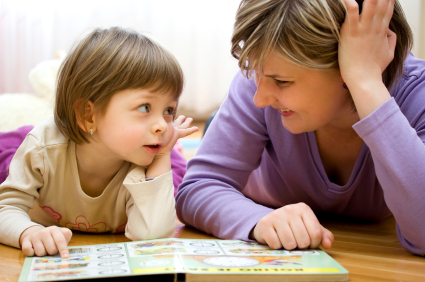From birth children are developing the knowledge and skills that are important foundations for later literacy development, even though it may be some time before they will develop the skills to read, write and verbally communicate in the conventional way.
Over the last decade we have seen a huge change in how society looks at literacy, what we place value on and experiences for young children. Some examples we see in children’s services is a strong move to online documentation which provides families with increased access, however reduces the child’s access to previously used floor books and hand written portfolios. We have seen increased use of technology as part of “literacy groups” where educators use apps, audio books and online programs rather than quality literature, poetry, rhymes and songs. Increased pressure from families wanting their child to be able to read and write before school (and way before their brains are ready). Screen time for children under 5 years has increased so much that current research has identified significant changes in sleep patterns, behaviour and well-being. This should not be shocking considering the substantial research on the importance of human relationships and physical / face to face contact for early childhood brain development.
So what can we do? As educators we need to support the development of children’s emerging literacy skills through a variety of daily experiences and resources that demonstrate to families that the skills required for speaking, reading, writing and listening occur when these experiences are meaningful, enjoyable, developmentally appropriate and have a real purpose- they are connected to real life experiences and relationships. It is important that we use the child’s interests and current level of understanding to guide us in supporting their literacy development.
How can we do this with babies and toddlers?
Talk with them about everyday experiences and what is happening around them, including explaining what is happening during routine activities such as feeding, bathing and nappy changing (it is suggested we should be speaking a minimum of 17,000 words / day to our infants)
Sing songs, read poems and especially nursery rhymes with your children
Provide simple and sturdy books for your child to explore on their own as well as read to infants & toddlers daily, talk about the illustrations and what may happen next
Point out signs, pictures and logos. Older babies and toddlers often enjoy ‘spotting’ familiar images that relate to things they have seen in books or in their environment (McDonalds is usually the first!)
Show children that you enjoy reading with them, and make this a special time for cuddles and one-to-one time. Reading stories can become a part of settling routines such as rest time

How can we do this with pre-schoolers?
Write in front of children and explain what and why you are writing such as letters, lists, planning and other documentation
Encourage children to “read” their own books and signs in the environment
Read books every day and discuss the illustrations and context of the story, asking questions such as “what do think will happen next?”
Encourage children to create their own stories
Sing songs, read poems and play with rhyme and alliteration
Provide rich and high quality drawing and writing materials to encourage children to develop their fine motor skills as well as representational skills
Talk to children about their ideas and work
Promote enthusiastic discussions and their environment, relationships, interests
Have high quality children’s books available at ALL times- both story and factual books
Value literacy and demonstrate to children how to use this respectfully
This is not an exhaustive list, however these should be part of your everyday practices. Enjoy literacy with children… you don’t need elaborate resources … all you need are relationships, ability to listen and of course an eagerness to engage!
Happy Talking 🙂
Leave a Reply